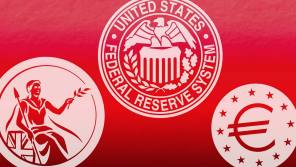

The wave of sustainable investing that has rightly swept across asset management in recent years has introduced a plethora of different processes and benchmarks aimed at improving investor decision-making.
There is, however, one often forgotten aspect of sustainability that is equally as powerful a tool when it comes to making a call on an investment, and that is examining company culture.
While ESG (ethical, social and governance) considerations are now an intrinsic part of many investors’ processes, gaining an understanding of the strength of a company’s culture has often been overlooked, despite the deep insight it can offer.
The importance of a strong and well-managed culture is something few in the industry would deny.
It goes hand-in-hand with ESG considerations yet is only now beginning to appear on the radar of investors, whether that be when selecting an asset manager or when deciding to invest in a company’s stock.
Gaining an investment edge
At a recent public forum run by the Thinking Ahead Institute – a non-profit research and innovation member group sponsored by Willis Towers Watson that is dedicated to improving the investment industry for the benefit of the end saver – those attending were asked if they believed they would learn more about an organisation from its strategy, or from its culture.
Around 90 per cent chose culture.
While hard strategy and direction is important, a company’s culture will reveal a lot about how a business is run, about the dedication of employees and about the management style of senior leaders.
However, culture tends not to be consciously measured and managed by investors. It can be hard to quantify or measure as it is associated with ‘soft’ data rather than hard figures, not to mention being difficult to define.
However, it is possible and more companies are seeing the benefit of doing so.
Willis Towers Watson, the investment manager of the Alliance Trust portfolio, defines culture as “the collective influence of shared values and beliefs on the way an organisation thinks and behaves”.
Judging culture
When going through the process of selecting managers to pick stocks to include in the Alliance Trust global equity portfolio, Willis Towers Watson’s process formally incorporates an assessment of culture. We consider it a key element to an asset manager’s success.
However, if not carefully managed a strong culture can weaken over time.
In a world of increasing regulatory scrutiny, a manager’s ethical orientation and integrity can serve as the ultimate safeguard against fraud and reputational damage, implying greater focus on nurturing company culture.
Importantly, it is not something that can be paid lip-service.
Culture is an intangible aspect of an organisation, and actions speak much louder than words in ensuring a positive, dynamic backdrop in a workplace.
Simply claiming to be inclusive and future-focused does not necessarily mean that this is reflected on the ground.
An examination of culture must also make a consideration for context. There is no blueprint for how a culture ‘should’ be.
Making it a part of any decision-making process means striking a balance between being able to compare firms while being flexible enough to account for nuances between different teams.
Examining how a company delivers value to employees and clients, as well as how the overarching leadership provides guidance and oversight of culture, is a good starting point.
If management leads with integrity and fairness, while balancing hiring the best talent with incorporating diversity, then it hints at a positive underlying culture.
If an individual portfolio manager owns shares in their own strategies and owns or has strong influence over the asset management business, it is generally a good sign.
It means their interests can be aligned with the clients, and that’s one of the tests we apply before selecting them to invest the Trust’s assets.
Clearly, there will be many examples of weak culture that suggest limited prospects for a firm.
Issues such as a lack of development opportunities for junior staff can be a big red flag when looking into a business.
If staff do not appear to be engaged or connected with the firm’s mission, or if there is ‘groupthink’ and little diversity in thought, this can also raise concerns.
Other red flags might include closely-held ownership, or a firm that places little value on levels of client satisfaction.
Is it worth the time?
Making ‘culture’ an integral part of the investment process is, admittedly, time consuming.
It is also a heavily subjective consideration to make given the differences between businesses and management styles.
Often, the trend towards short-termism can stop investors from viewing culture as an important indicator; sometimes this is due to the length of time it can take for a positive culture to translate into tangible financial returns.
Yet we believe culture can provide a clear and sustainable edge when it comes to investing.
It may be time-consuming and difficult - to say the least - but just because something is hard to measure it does not mean it is not worth the effort, particularly in the pivotal area of company culture.
Craig Baker is global chief investment officer at Willis Towers Watson and chairman of the Alliance Trust investment committee



